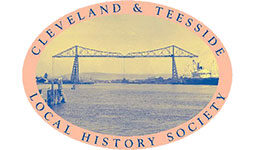Born: His surname and the fact that he held property in Brierton point to Hartlepool being Geoffrey de Hartlepool’s likely place of birth. His father, named John, was stated to be an inhabitant of the Palatinate of Durham.
Educated: Geoffrey’s successful legal career indicates that he was well educated.
Married: It is not known whether he married.
Family:
Home: Geoffrey de Hartlepool became an alderman of the City of London so he probably spent the later years of his life there.
Known for: Geoffrey of Hartlepool was trained as a lawyer in the late thirteenth century. In 1302 he became an alderman of Candlewick Ward in the City of London and a sergeant of the King’s Bench in 1302. In 1304 he became Recorder of the City of London. No earlier report of a Recorder of London has been found, so he is regarded as the first to fill that office. In that capacity he escorted the captured William Wallace to his trial in Westminster Hall in 1305. In 1306 the Scottish King Robert Bruce forfeited his English estates including Hartlepool. King Edward II granted those lands to men he could trust, and this included the grant of the manor of Keverstone to Geoffrey. Geoffrey of Hartlepool, as one of the king’s justiciars, was instructed to arrange for a group of Scottish prisoners to be hanged. In 1310 he was appointed one of three lawyers appointed to represent the City of London in cases before the King’s Justices. He was also appointed to investigate allegations of unlawful practices by some of the king’s officials.
Died: Not known.
Further Information: “Select Cases Concerning the Law Merchant” Charles Gross (ed) for the Selden Society (1908).
